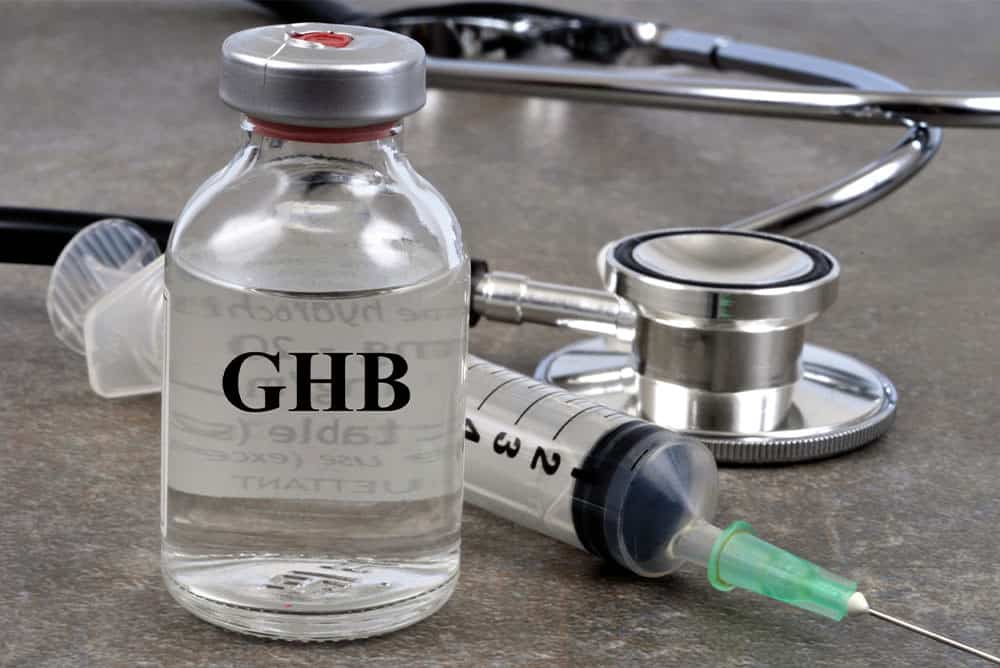There have been over 15,000 GHB drug overdoses in the United States alone since 1990. These statistics are only getting more worrying.
Since 2017, the number of deaths from GHB overdoses has doubled. But even those who survive taking GHB aren’t in the clear.
It is a highly addictive substance. Withdrawal symptoms can kick in as little as 3 hours after ingestion. This why liquid GHB and other forms are illegal in the US and around the world.
If you’re worried about your GHB abuse, or that of a loved one, you need to know as much as you can in order to help. And you’re in the right place.
Read on to find out all about GHB and GHB addiction.
What is GHB?
GHB stands for Gamma Hydroxybutyrate. It acts as a depressant for your central nervous system.
GHB actually occurs naturally in your body. Gamma-aminobutyric or GABA produces it when it acts as an inhibitory neurotransmitter. This helps to relax you when you’re going to sleep.
However, the doses that your body produces are a fraction of the strength of GHB the ‘club drug’.
People take it in either liquid or powder form. Other names for GHB include:
- G
- Goop
- Georgia Home Boy
- Liquid Ecstasy
- Scoop
- Liquid X
- Easy Lay
The names used also vary depending on the area you are in.
What is GHB Used For?
Medical professionals originally developed GHB in the 1950s. They tested it for clinical use as an anesthetic. However, this use quickly stopped when the side effects and risks became apparent.
Now it is most commonly used as a party drug. It is often used for drink spiking but some people also choose to take it voluntarily.
It is tasteless and odorless so often people are unable to tell if someone has added GHB to their drink. When mixed with alcohol its depressant effects become even stronger.
However, some people use GHB for other things.
Some people believe it has anabolic effects. This means it helps to build muscles and tissue. As a result, it is popular with some body-builders.
In the US the Food and Drug Administration (FDA) has approved one use. This uses sodium salt, Xyrem, from GHB to treat those suffering from narcolepsy.
Because GHB is highly addictive, the FDA carefully regulate the use of Xyrem. It is not available on general prescription and requires authorization to use.
What Does the GHB Drug Do?
GHB affects your central nervous system, so it inhibits your experience of reality. Because it is a depressant, it often means you will slow down or even lose consciousness.
Some people actually use GHB for this reason. They argue that its positive effects include tranquility, euphoria, and relaxation. Some also claim it increases their sex drive.
However, the negative side effects far outweigh the positive ones. It’s easy to take too much GHB and this will leave you feeling very unwell. Side effects include:
- Sweating
- Nausea or vomiting
- Loss consciousness or difficulty remain conscious
- Hallucinations
- Confusion and dizziness
- Memory loss
- Difficulty coordinating movements
- Headaches
- Exhaustion or sluggishness
- Lowered temperatures
- Mood changes, particularly increase agitation
But GHB can have more serious effects on your body. It can also lead to seizures. And a loss of consciousness might leave you in a coma.
Or GHB might affect your ability to breath properly. This because it inhibits your central nervous system.
When GHB combines with alcohol the effects are more extreme and more dangerous. Anyone who has overdosed on GHB needs to seek medical attention as soon as possible.
GHB Addiction
Recovering from a GHB overdose isn’t the only problem facing those who use the drug. Like all illegal drugs, it is also highly addictive.
This is because taking it creates dependency in the user. However every time you take it you also increase your tolerance.
This is particularly dangerous with GHB. A higher tolerance means you need to take more to get your hit. But this leaves you in danger due to its potency.
It doesn’t take a lot of GHB to cause an overdose. So the more regularly you take it the more at risk you are. But it isn’t always easy to stop.
The withdrawal symptoms kick in quickly and are intense for anyone experiencing them. These include:
- Insomnia
- Tremors
- Sweating
- Anxiety
- Increased blood pressure and heart rate
- Psychotic thoughts
Those experiencing withdrawal might also experience mood swings or be in denial. This is a difficult and often incapacitating time for anyone involved.
GHB withdrawal often lasts about 14 days although this depends on how much you have taken and how often. Once the drug is out of your system the challenge is overcoming the psychological element of your GHB addiction.
Getting Help
Luckily there are a lot of options for help recovering from GHB addiction.
Rehabilitation can help you overcome the initial stages. And support groups can offer help as you continue in your recovery. It’s important to recognize that overcoming addiction is often a long road.
Those helping friends or family overcoming addiction should also look for support. This is often a difficult and emotionally challenging task. Talking to people who are going through similar things creates a network to help you as well.
You can find out more about different addiction treatment programs here.
The Bottom Line
Addiction to the GHB drug often behaves like the drug itself. It’s hard to detect and potent in the lives of the people that it touches. So it’s important to get help sooner rather than later.
Get in touch with us today if you’re worried about your GHB abuse or a friend’s addiction. We’re here to help.










